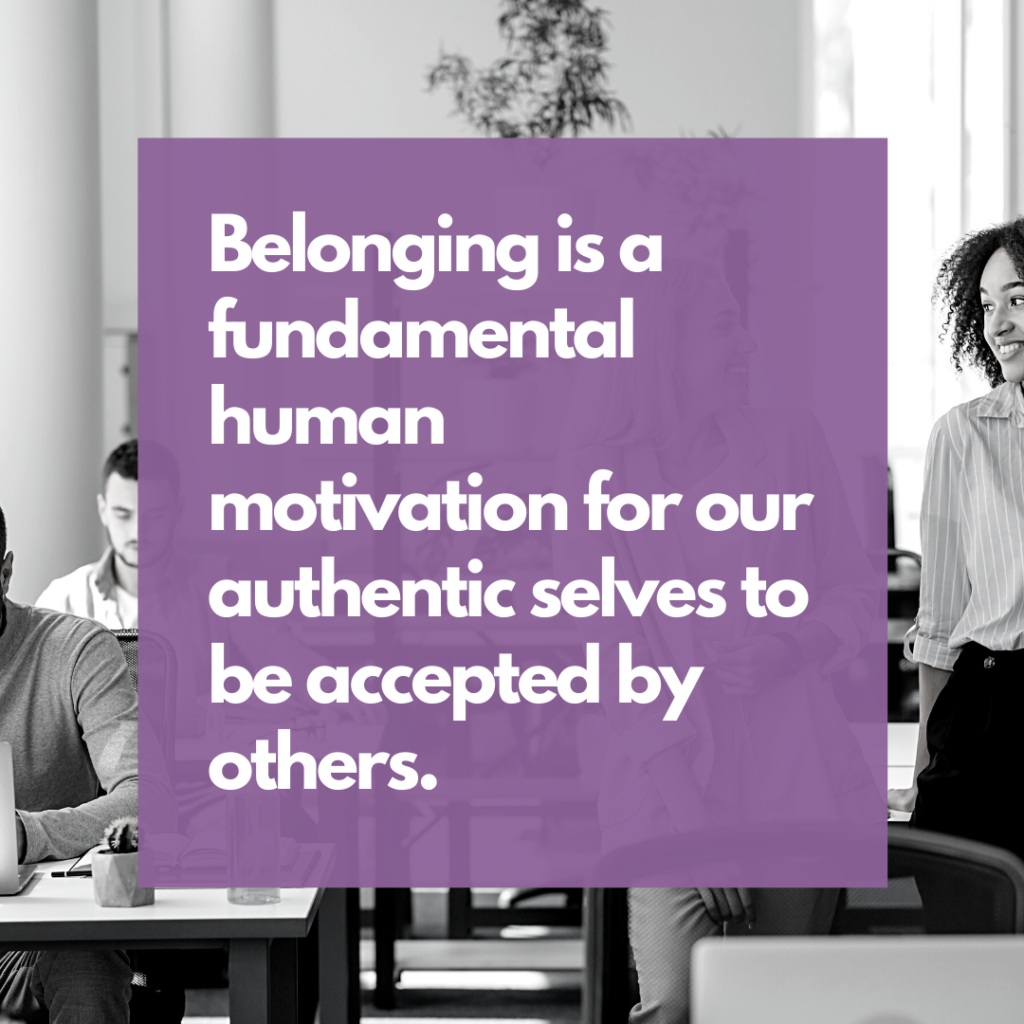Your CEO, Jim, came to you yesterday and said he noticed that cliques seem to be forming in your department. You, Jim, and your fellow department heads are really focusing this year on team cohesion and creating a workplace where each person feels valued and included. You’ve taken your team on retreats and discussed ways to be more inclusive. But you’ve noticed it too- there are three managers who spend a lot of time together chatting during the workday, and they always sit together at lunch. A couple of other managers seem to be excluded from this inner circle and it’s affecting their work. They appear to be less willing to offer their ideas and input in meetings and seem increasingly timid, almost as if they’re scared their ideas will be shut down.

Sometimes during the workday, you overhear the trio’s conversations. They seem to be looking at photos of other team members on social media and making fun of their weight and the way they dress. They think no one can hear them, but their voices carry. The ‘outsiders’ who aren’t in this trio are excellent workers with valuable skills, but they aren’t the most fashionable or fit people on the team. It’s a sticky problem. You can’t tell the three managers not to be friends anymore, make them stop all personal conversation at work, or force them to include the two ‘outsiders.’ But you don’t want this to affect your team’s performance, and you definitely don’t want anyone to feel like an outsider. How can you create a workplace where everyone belongs, and no one feels ostracized?
Belonging is so important at work, and when people don’t feel like they belong, they won’t feel comfortable enough to contribute fully. They might even leave an organization in search of a place where they can fit in and belong to a group of like-minded people. Belonging is a fundamental human motivation. We all want our authentic selves to be accepted by others, and organizational performance will never reach it’s potential without belonging.

Creating a sense of belonging in the workplace can make a HUGE difference in employee performance, productivity, happiness and retention. According to a recent study by BetterUp, workplace belonging leads to a 56% increase in job performance, a 50% reduction in turnover risk, and a 75% decrease in employee sick days.
From an evolutionary perspective, belonging to a group (or a tribe) used to keep humans alive. Belonging meant that you were afforded benefits of group membership, including protection from possible harm, which increases the likelihood of survival. It also meant an increased chance of long-term relationships resulting in having children who also can survive and thrive among the elements.
In Maslow’s hierarchy of needs, once humans are past the physiological and physical needs to stay alive, belonging is the most foundational of the social needs. We are actively motivated to feel included in social groups where we form relationships in order to avoid problems like loneliness, depression and anxiety. And in today’s society, many of these social groups exist within the workplace.
Humans are Motivated for Belonging
Baumeister and Leary (1995) conducted a review of decades of research on belonging. They report evidence of humans’ motivation to belong being so strong that people work actively to hold onto relationships, “even if there is no material or pragmatic reason to maintain the bond and even if maintaining it would be difficult.” They describe one study of human behavior where people sent holiday cards to strangers simply because they received a card from them. There is an abundance of evidence that highlights the multitude of ways that humans are motivated for belonging. Societal rituals such as weddings, which honor a relationship, highlight the importance of belonging. Even in situations when humans reject a bond (such as in unrequited love), we tend to feel distress and pain during the experience, showing how core belonging is to our existence as humans.
Humans suffer without Belonging
Brené Brown describes what can happen when humans feel deprived of belonging, which is a sense of shame. She defines shame as “the intensely painful feeling or experience of believing that we are flawed and therefore unworthy of love and belonging”. These feelings of shame lead to all kinds of ill effects like anxiety, depression and self-destructive behaviors like addictions and self-isolation. Research from Kiecolt-Glaser and colleagues offers evidence that a lack of belonging leads to reduced immune system functioning, and other research has linked loneliness to higher incidence of illnesses, cancer and even death.
Belonging appears to be a major differentiator in how we experience our lives and is clearly a fundamental human need. Organizations that create an environment where people feel that they belong will benefit from greater energy and output from those employees, as they are free to bring their whole selves to their work. To learn practical ways of helping individuals feel a better sense of belonging at work, check out these blogs:
The Critical Importance of Inclusion: A Story About Diversity
How Do You Create Diversity?
When individuals do not feel psychologically safe or they feel they don’t belong, they fail to speak loudly and confidently through dissenting opinions and multiple layers of management. Break through the barriers to belonging within your team. We identify behaviors and patterns that are hindering people from expressing themselves fully at work. If you’d like to learn more about creating belonging in your workplace, we offer modules and lessons to increase belonging within our Insider Edge platform. Join today and start making a difference for yourself, your team and your company.
Ready to take your leadership to the next level? Get your FREE copy of my eBook, Level Up: 3 Steps to Be a Better Leader. Click here to download!


4 replies on “Creating a Sense of Workplace Belonging Can be Tough – Here’s What You Can Do”
[…] in this series, you now know there are four fundamental human drivers in organizations: growth, belonging, connection, and identity. When leaders design their cultures in such a way that these human […]
You can decrease the outcomes of anxiety.
The ideas showcased inside the over article are useful for treating anxiety in every kind.
Utilize the assistance on this page carefully each day.
You’ll shortly notice that you can treat your nervousness.
The information in this article ought to be helpful to you.
when you are usually learning something totally
new then you could keep the mind fresh which will give you an increased way of life and assist you to are living lengthier
What’s up to all, the contents existing at this website are genuinely amazing for people knowledge,
well, keep up the nice work fellows.